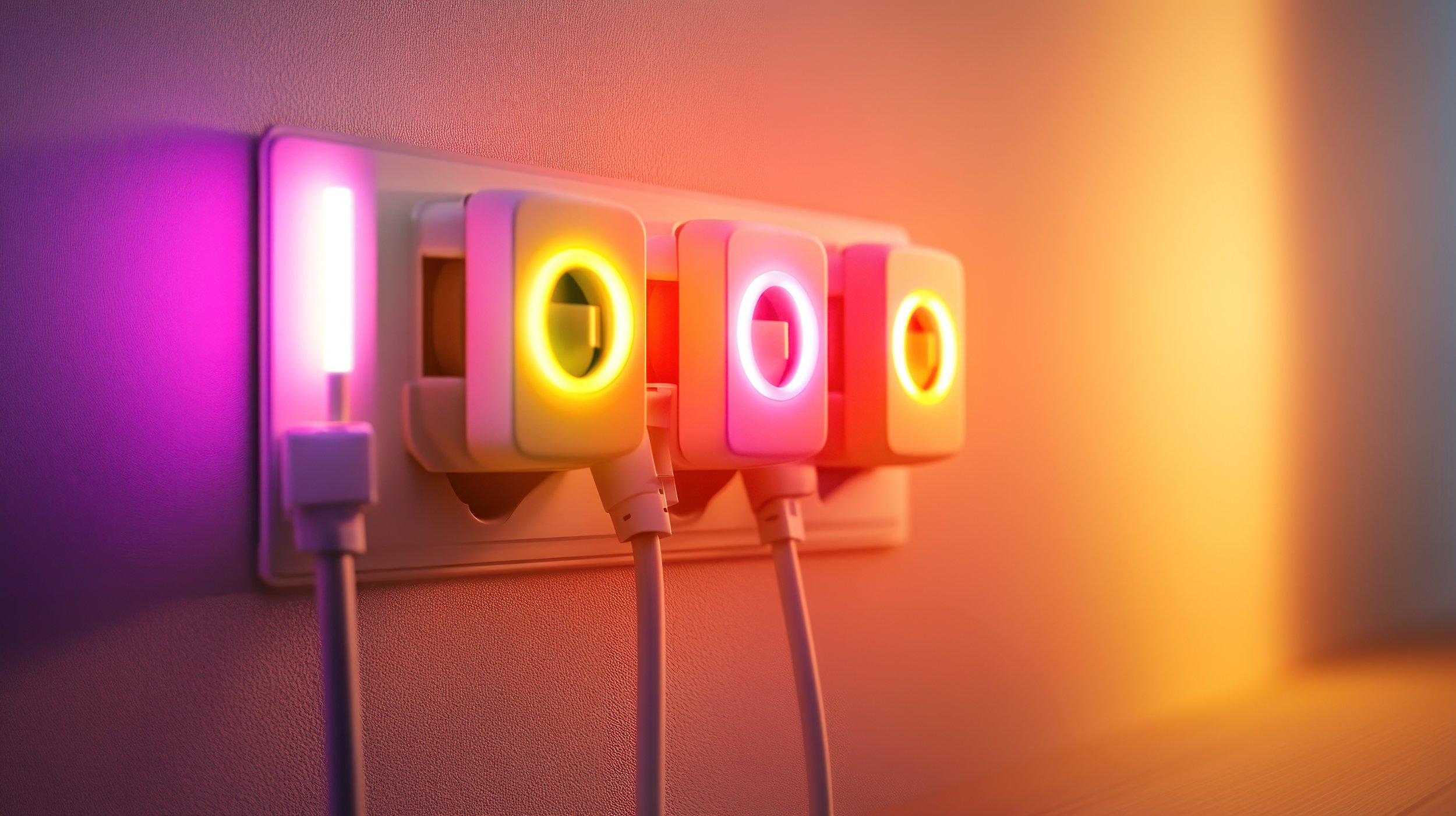5 Ways You’re Living Sustainably Without Even Trying.
When we think about sustainable living, we often imagine grand gestures. Going fully vegan, swearing off air travel forever and making major lifestyle changes. And while those changes are incredible, the truth is that living sustainably doesn’t have to mean a complete lifestyle overhaul. Small choices matter too sometimes, even more than we realise.
Chances are, you’re already living an eco-conscious lifestyle in ways you haven’t even noticed. And that’s the beautiful thing about sustainability, it starts with awareness, not perfection. So if you’ve ever felt like you’re not doing “enough” for the planet, take a breath. You might already be part of the solution.
Here are five everyday habits you might already be doing and how they’re making a real difference:
1. You Turn Off Lights and Unplug Appliances When They’re Not in Use
Let’s be real, maybe you turn off the lights just to dodge a mini heart attack when the electricity bill drops. Totally fair. It might seem casual, but that small act is doing more than saving your coins. It’s actually helping the planet.
Beyond saving money, you’re cutting down on what’s known as “phantom energy”, the power that appliances still drain even when they’re turned off but plugged in. Think phone chargers, microwaves, and TVS on standby silently sipping energy behind your back
By reducing your energy use at home, you’re lowering your carbon footprint and keeping a little extra money in your pocket. That’s double the win.
Here’s how you can improve on that:Consider smart power strips. They cut power to devices that are on standby, saving electricity.
Choose LED bulbs and energy-efficient appliances when you can. They last longer and use way less energy.
Make use of natural light during the day when possible.
2. You Use Water Mindfully
Water is one of the most precious resources on the planet, and it’s under serious pressure. Climate change, rapid urban growth, and poor water management are stretching global water supplies thin.
But if you’re someone who naturally keeps your showers short, turns off the tap while brushing, or only runs the washing machine when it’s full, then you’re already doing a good job conserving water.
What most people don’t realise is that treating, pumping, and heating water eats up a lot of energy. And that energy use means more greenhouse gas emissions. So when you conserve water, you’re not just saving the resource itself, you’re helping reduce the strain on our environment.
According to the United Nations, four billion people already face water scarcity for at least one month a year. As of 2025, two-thirds of the global population could be living under water-stressed conditions. That’s why every drop you save counts.
Here’s how you can improve on that:Install low-flow showerheads and faucet aerators to cut down water usage without compromising pressure.
Collect rainwater for watering your plants. Rainwater is naturally rich in minerals and gentle on plants.
Regularly check for leaky taps or pipes and fix them promptly to avoid wastage.
3. You Thrift or Repair Instead of Replacing
In today’s trend-driven world, it’s easy to get swept up in the constant “new drop, new outfit” cycle. Consumerism is loud, and so is the pile-up. From fast fashion to home appliances, there’s an overproduction of everything, and much of it ends up in landfills when the next wave of trends hits.
But if you’re someone who buys second-hand, loves a good thrift find, or fixes things instead of tossing them? You’re a hero for the planet.
Whether it’s a retro jacket that once belonged to someone’s grandma (and still slaps) or a blender that just needed a new fuse, you’re keeping valuable items in circulation and reducing waste.
Every time you choose to repair or repurpose instead of replace, you’re making a real dent in waste reduction. This kind of mindful consumption is the heart of the circular economy, and it ripples far beyond your home.
Here’s how you can improve on that:Learn basic repair skills like sewing, woodworking, or light electronics. You can start with a YouTube tutorial.
Host or attend a clothing swap event. It’s like shopping, but free and sustainable.
Take damaged items to a local repair shop instead of replacing them on impulse.
4. You Walk or Bike Short Distances Without Thinking Twice
If you’re someone who’d rather walk to the corner store than start up the car, give yourself a high five. It might seem like no big deal, but it’s a low-emission lifestyle choice that benefits both your health and the planet.
Walking, biking, or even taking public transport for short distances helps reduce your carbon footprint, eases traffic congestion, and contributes to cleaner air in your community. Every time you skip the gas pedal, you’re cutting back on fossil fuel use and that matters more than you think.
It’s also a gentle form of exercise, a great way to clear your mind, and a win for your wallet (because gas is not cheap).
Here’s how you can improve on that:Invest in a good bike or scooter for longer distances; it’s both fun and efficient.
Consider combining errands into one walkable or bikeable route to save time and minimise unnecessary trips.
Use a journey-tracking app to monitor your walking or biking activity. This will help keep you motivated and aware of your impact.
5. You Avoid Food Wastage
If you’re someone who eats leftovers, uses your veggies before they go bad, or avoids impulse-buying groceries you don’t need, you're more eco-conscious than you think.
The average person wastes about 74kg (163 pounds) of food per year, according to the United Nations Food Waste Index Report 2021. That’s a whole lot of resources; water, energy and land down the drain.
So, it may seem minor to you, but being intentional with your food makes a real impact.
Rotten food in landfills produces methane, a greenhouse gas that’s over 25 times more potent than carbon dioxide in trapping heat.
By simply using what you have, you’re helping to combat global warming, conserve resources, and ease the pressure on landfills. It’s one of the easiest and most impactful eco-friendly habits anyone can adopt.
Here’s how you can improve on that:Start composting food scraps like peels, eggshells, and coffee grounds to reduce landfill waste.
Learn creative recipes that help you use up odds and ends, think soups, stir-fries or even smoothies.
Plan your meals before you shop to avoid overbuying, and make sure you stick to the plan!
Bonus Tips to Boost Your Sustainability Game
You’re already doing so much, but if you’re feeling inspired to take your eco-efforts a step further, here are a few simple ways to keep the momentum going:
Support local businesses: Shopping small not only boosts your community, but it also reduces the carbon footprint tied to large-scale production and shipping.
Use AI tools intentionally: Every prompt you run uses up energy behind the scenes. So while AI is great for boosting creativity and productivity, using it with purpose is a subtle but meaningful way to live more sustainably.
Go paperless where you can: Digital receipts, online billing, and notes on your phone are small switches that save trees.
You’re Already Doing More Than You Think
Living sustainably can feel overwhelming, especially when the spotlight is often on big, dramatic lifestyle changes. But the truth is, the small, mindful things you do every day? They matter. A lot.
You’re already part of the solution when you unplug your devices, walk to the store, repurpose leftovers, or say no to fast fashion. And now, with just a little more intention, you can keep building on that. Step by step, habit by habit, you’re making the world a better place. So, thank you for the good work.



